That’s What Christmas Is All About
-A Letter from the Publisher-

“O come, O come Emmanuel… Rejoice! Rejoice, Emmanuel has ransomed captive Israel.” What powerful words from a wonderful Christmas hymn. We have the opportunity each year to celebrate the fact that our Emmanuel, Jesus, came to this earth as a small baby to pay the ransom for us. Why would we not want to rejoice? How can we not gaze in wonder at the story of our Saviour’s birth? It can become so easy to lose focus during the hustle and bustle that the Christmas season brings with it that we forget why we are even celebrating in the first place.

In Terry Overton’s new Christmas book, Oddball Ornaments: The Story of Christmas, she explores the meaning of the season from a new and unique perspective, that of the ornaments.
They are ready to be hung after Thanksgiving (like they are every year), but when Grandma arrives with new ornaments, what will become of the oddballs? An excerpt from chapter 9 illustrates Terry’s unique way of weaving the story of Christmas into this wonderful book!
“Nutcracker described the beautiful scene he had discovered at the bottom of the tree. He told the ornaments about the animals, and the shepherds, and the kings. Then he talked about the family inside the little shed. And then he explained more about the Baby Jesus and said, ‘He is a gift from His own Father, God.’
‘What?’ Ballerina asked. ‘God gave people a present? His Son? He gave away His own baby?’
‘I know it’s hard to believe and understand. But God made all of the humans and the animals and, well, plants, fish, oceans, stars, and, well, everything. And God loves people so much that He wanted to show them by giving this gift.’” And what a precious gift He is.

Judy DuCharme shows another aspect of Christmas in her book, I Want a Water Buffalo for Christmas. Instead of focusing on the ultimate gift we have received at Christmas, she focuses on what we ourselves give in response. Judy demonstrates the idea of giving and showing our love to others, providing for those who are less fortunate than we are, and using the gifts that God has given us for His glory through the story of LeGory (a young Water Buffalo) and the journey he faces.
“And so it was that the baby water buffalo who had survived the vicious attack of lions, escaped the mighty crocodile’s bite, learned kindness and strength of character from his grandfather and his father, and mastered the ways of the farmer, was now an instrument of God to bless a family with little or no hope. LeGory brought love and provision from the God who loved him and loved Tuni and Dalia, because of the determination and sacrifice of eleven-year-old Emma who only wanted to give a water buffalo for Christmas. It was all accomplished through the work of Gospel Gifts. LeGory knew his journey had been planned by the One Who made him, and he wanted to do everything he could to help care for this family so God could teach them His love, and so they could help others.”
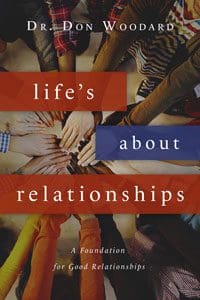
Helping, being there, and showing love for others is such a key element in the story of Christmas. It is important that we don’t get so wrapped up in gifts, packages, and bows that we forget about those we are spending Christmas with. In Life’s About Relationships, Dr. Don Woodard explores the importance of the relationships that surround us, the necessity of being truly present and focusing our time and energy into our family and those we love, and how we should be displaying and modeling this to our family.
“At the end of our lives, we will not say I wish I would have spent more time at the office or playing sports or seeking fortune and fame. We will wish that we would have spent more time with family, with those that we love. Money, possessions, and health can all fade away or lose their value, but two things are certain: our relationship with God, Who loves us and created us for Himself, and those special lifelong relationships that God sent into our lives to make our life more pleasant and interesting. When everything else is gone, these relationships will matter the most.”
“We can influence young people about good relationship behaviors, not by what we tell them, but by what we show them through our own relationship behaviors. I will never forget my fifth-grade Sunday school teacher, Mr. Lawrence Schaffer. One Saturday, he invited each pupil in our boys’ Sunday school class out to his house for a Christmas party. During the party, we played games, ate hotdogs and popcorn, and did stuff fifth grade boys do. Just imagine the conversations, ‘Batman is cooler than Superman because he has a cool car,’ or ‘John Wayne is the best ever because he shoots guns and gets to ride a horse.’ These were my normal topics of conversation when I was ten – very important stuff to know!
The thing I remember most about that Christmas party was the way Mr. Schaffer treated Mrs. Schaffer. He spoke politely to Mrs. Schaffer, never raising his voice, never cursing, or threatening to hit her. They spoke lovingly to each other, they smiled at each other, they laughed together, and without knowing it, they taught a fifth-grade boy what a marriage relationship can be. Through their influence and example, they taught me positive relationship behaviors.”
Never underestimate the power of the example you may be setting forth today, over Christmas as you are surrounded by those you may not often see every day. Your actions and how you celebrate the true meaning of Christmas, although they may be small or normal to you, could change someone’s life.

We weren’t meant to do it alone, we need relationships. But we also need to open our doors like the Shaffer’s did for Don and his Sunday school class. So how do we do this? How do we live out our faith during this Christmas season? Martin Wiles gives us a blueprint with practical approaches for discerning how to live out the Bible in today’s world within the pages of his book, Don’t Just Live… Really Live.
“Perhaps more than anywhere else in Scripture, real living is addressed and described in Jesus’ Sermon on the Mount (Matthew 5-7). The teachings are demanding – and take a lifetime to master – but the rewards are bountiful. When mastered – even to a degree – life is simpler and more peaceful. Most of all, we experience the joy of knowing how to really live life. We’re not artificial but genuine. And we comprehend it’s not all about rules and regulations, but about a loving relationship with a loving heavenly Father through a magnificent Savior.”
“The first four beatitudes deal with inner principles that, if followed, will result in outward actions, which should be our goal. Realizing our spiritual poverty apart from Christ naturally leads to showing mercy. Those who recognize the horribleness of sin strive for purity. Not seeking retaliation or revenge results in peace. And striving to live by God’s standards will incur persecution.”
“Real living may involve rules, regulations, and traditions, but they do not produce it. Believing that it does results in building our life house on sand, and, in the end, it won’t stand. We experience real living by incorporating Jesus’ two greatest commands into our lives: love Him supremely and then others as ourselves. The first will always result in the second, and when we obey these two commands, we will fulfill all the other demands of God’s moral law. Abundant life will be ours. We’ll learn to be content no matter our circumstances, we’ll allow Christ to accomplish His plan through us, and we’ll store our true treasures in heaven where we plan to live eternally.”
~
As we close out this year, in keeping with the spirit of loving others and of Christmas, I want to thank all of our authors, past and present, for being faithful with the mission of furthering the gospel through the written word and using what God has given you to reach the lost, the broken, and the hurting. I especially want to thank those on the Ambassador team (staff) who work so hard each day to see each book completed. This past year brought with it many challenges, but each and every team member pushed through and persevered. Thank you.
I believe Christmas, as it brings in the closing of one year and beckons in the start of another, is the perfect time to consider all that we have to be grateful for such as family, friends, but most of all, our precious Savior, Jesus.

“While they were there, the time came for the baby to be born, and Mary gave birth to her firstborn, a son. She wrapped him in cloths and placed him in a manger, because there was no guest room available for them.
And there were shepherds living out in the fields nearby, keeping watch over their flocks at night. And behold, an angel of the Lord appeared to them, and the glory of the Lord shone around them, and they were terrified. But the angel said to them, ‘Do not be afraid. I bring you good news that will cause great joy for all people. Today in the town of David a Savior has been born to you; he is the Messiah, the Lord. This will be a sign to you: You will find a baby wrapped in cloths and lying in a manger.’
Suddenly a great company of the heavenly host appeared with the angel, praising God, and saying, ‘Glory to God in the highest heaven, and on earth peace to those on whom his favor rests’” (Luke 2: 6-14).
 “If God had not loved and protected Joseph, Mary, and Jesus, what would have been the outcome for them? In Matthew, it says that “Herod gave orders to kill all the boys in Bethlehem and its vicinity who were two years old and under.” There was heard among the people “weeping and great mourning . . . Parents weeping for their children . . . because they [were] no more” (Matt. 2:16,18). But Joseph and Mary returned to Israel with their child still living. God’s love was shown to them through the protection of their child’s life.
“If God had not loved and protected Joseph, Mary, and Jesus, what would have been the outcome for them? In Matthew, it says that “Herod gave orders to kill all the boys in Bethlehem and its vicinity who were two years old and under.” There was heard among the people “weeping and great mourning . . . Parents weeping for their children . . . because they [were] no more” (Matt. 2:16,18). But Joseph and Mary returned to Israel with their child still living. God’s love was shown to them through the protection of their child’s life.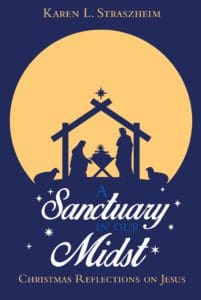 Pray and let Him know how you are and what you need. He will be there for you.”
“God is both supremely above us and with us. Jesus, He who saves, is also Immanuel, God with us. He is a king who is a servant to His people (John 13:1-16). God gave me a banquet of knowledge about Himself and then proclaimed a holiday. He “distributed gifts with royal liberality,” which included the gift of rest (Esther 2:18). This idea changed my thinking about Christmas.
Pray and let Him know how you are and what you need. He will be there for you.”
“God is both supremely above us and with us. Jesus, He who saves, is also Immanuel, God with us. He is a king who is a servant to His people (John 13:1-16). God gave me a banquet of knowledge about Himself and then proclaimed a holiday. He “distributed gifts with royal liberality,” which included the gift of rest (Esther 2:18). This idea changed my thinking about Christmas.








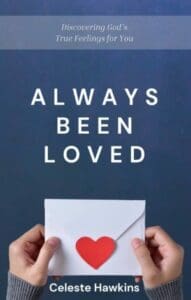





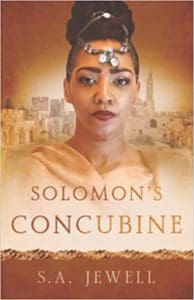
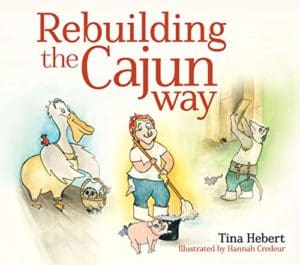
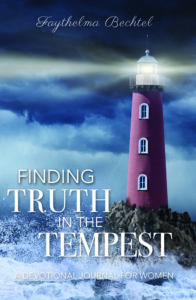











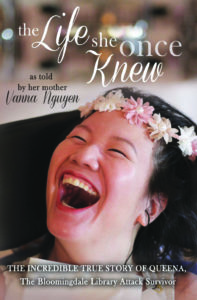
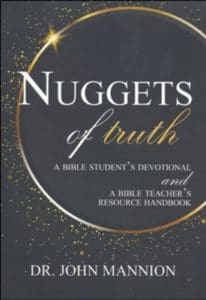


 and unrest. Although this year has taken many of us by surprise, we would be foolish to think that God, in all of His glory, did not see it coming. And even though the seasons and everything around us may change, God “is the same yesterday, today, and forever” (Hebrews 13:8). We cannot blame Him for current events because the Bible clearly states that, “every good and perfect gift is from above, coming down from the Father of the heavenly lights, who does not change like shifting shadows,” (1 Chronicles 16:11-12). If God is the same and gives good and perfect gifts, and there is a time for everything, then even in the year we have experienced, we can be at peace and at rest in Him. We can find comfort in His Word by searching out and memorizing the many truths that it offers us. Malinda Fugate’s book, The Other Three Sixteens, does precisely that. Many of us can recite John 3:16 from memory with no prompt. However, were we to be asked to recite Genesis 3:16 or Romans 3:16, we would be at a loss. Throughout Malinda’s book, she dives into each book of the Bible and expounds upon each chapter three, verse sixteen to show the numerous truths that can be found throughout the God’s Word and not just in John 3:16. She shows how a loving God and His mercy are woven throughout each chapter and verse of Scripture in seemingly unexpected ways.
and unrest. Although this year has taken many of us by surprise, we would be foolish to think that God, in all of His glory, did not see it coming. And even though the seasons and everything around us may change, God “is the same yesterday, today, and forever” (Hebrews 13:8). We cannot blame Him for current events because the Bible clearly states that, “every good and perfect gift is from above, coming down from the Father of the heavenly lights, who does not change like shifting shadows,” (1 Chronicles 16:11-12). If God is the same and gives good and perfect gifts, and there is a time for everything, then even in the year we have experienced, we can be at peace and at rest in Him. We can find comfort in His Word by searching out and memorizing the many truths that it offers us. Malinda Fugate’s book, The Other Three Sixteens, does precisely that. Many of us can recite John 3:16 from memory with no prompt. However, were we to be asked to recite Genesis 3:16 or Romans 3:16, we would be at a loss. Throughout Malinda’s book, she dives into each book of the Bible and expounds upon each chapter three, verse sixteen to show the numerous truths that can be found throughout the God’s Word and not just in John 3:16. She shows how a loving God and His mercy are woven throughout each chapter and verse of Scripture in seemingly unexpected ways. During these trying times, we need remember who we serve. We serve a God of second chances, a God of restoration, a God of forgiveness and peace, a God who disciplines those He loves for their benefit and growth, and most importantly, a God of love. If we are to be imitators of Christ, then we need to have a character like His. We can do this by accepting His peace in the place of the fear the world tries to tie us down with, by forgiving even when we feel wronged, and by accepting God’s love so that we, in turn, can show that same love to our neighbor instead of putting them down when their views or ideas are different than ours. We need to remember the other three sixteens in the Bible and how they show the love and mercy of God. Then, as Melinda Fugate states in the closing remarks of her book, we can “rest in the promise of His love that is faithful from generation to generation. Amen.”
During these trying times, we need remember who we serve. We serve a God of second chances, a God of restoration, a God of forgiveness and peace, a God who disciplines those He loves for their benefit and growth, and most importantly, a God of love. If we are to be imitators of Christ, then we need to have a character like His. We can do this by accepting His peace in the place of the fear the world tries to tie us down with, by forgiving even when we feel wronged, and by accepting God’s love so that we, in turn, can show that same love to our neighbor instead of putting them down when their views or ideas are different than ours. We need to remember the other three sixteens in the Bible and how they show the love and mercy of God. Then, as Melinda Fugate states in the closing remarks of her book, we can “rest in the promise of His love that is faithful from generation to generation. Amen.”